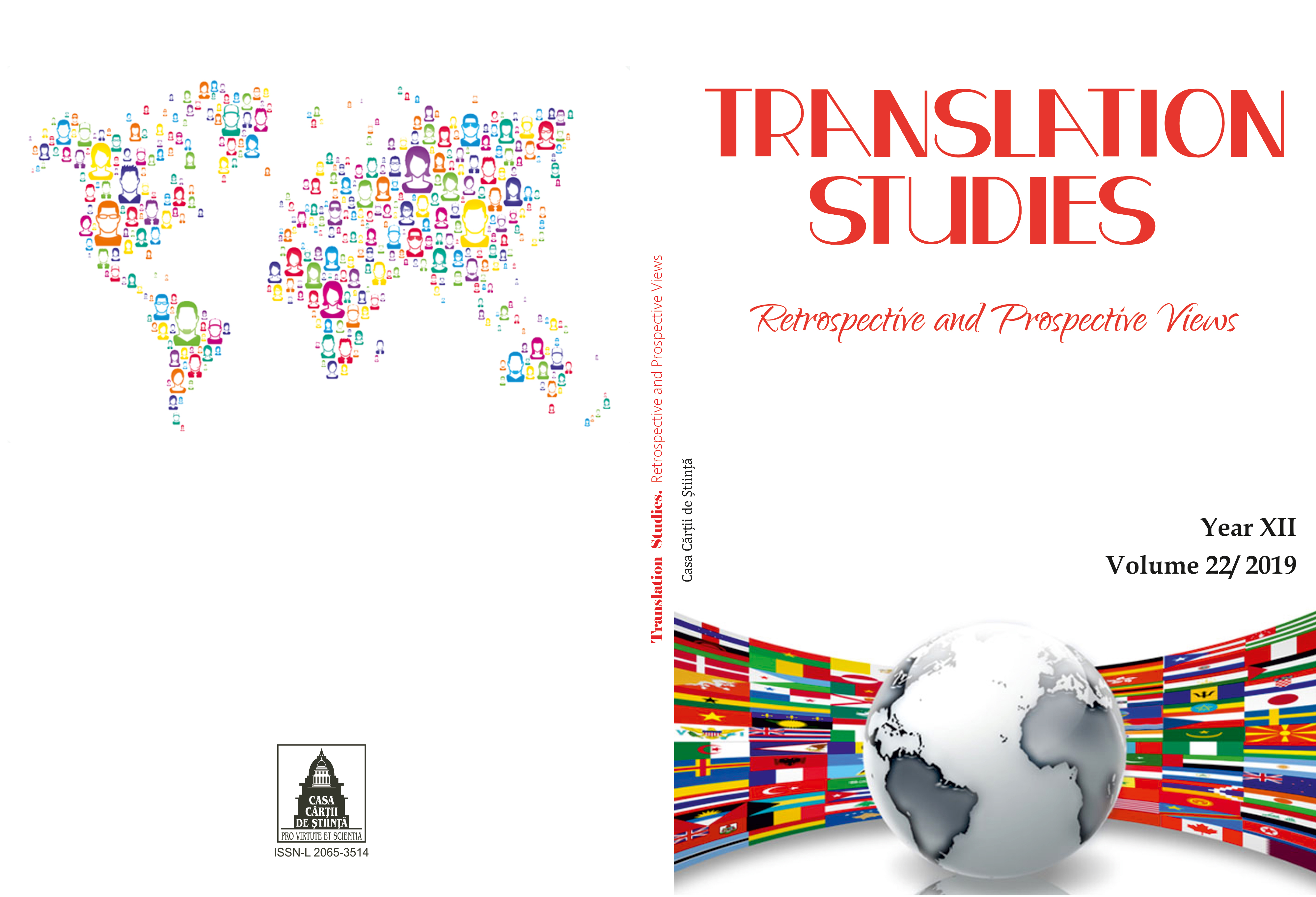TRANSLATING “JAPAN” IN COMMUNIST ROMANIA: THEORY AND PRACTICE IN THE 20TH CENTURY
TRANSLATING “JAPAN” IN COMMUNIST ROMANIA: THEORY AND PRACTICE IN THE 20TH CENTURY
Author(s): Irina HolcaSubject(s): Language and Literature Studies, Translation Studies
Published by: Editura Casa Cărții de Știință
Keywords: Japan; Asia; communist Romania; translation theories; indirect translation;
Summary/Abstract: This paper sets out to analyse on the one hand the theoretical discourse about the methods and aims of translation, and on the other hand the actual translations from Japanese that are found during the ‘60s and ‘70s in the pages of the cosmopolitan monthly magazine “Secolul 20” (The 20th Century; published by the Writers’ Union of Romania from 1961; renamed “Secolul 21” after 2000).By looking at the material published in the above-mentioned magazine, as well as similar or complementary sources (books on translation, translators’ forewords& afterwords, etc) from the same period, I intend to outline the theories and practices of translation emerging under the communist regime, with a focus on the period of the so-called “cultural thaw” that followed Nicolae Ceaușescu’s coming to power, from the second half of the 1960s and through the 1970s. My aim is to shed light on the complex relationships between translation from non-Western/ “minority” languages, especially Japanese, and politics, especially socialist state ideologies and (self-)censorship mechanisms. Attention will also be paid to the fact that, at the time, translations from Asian languages were often re-translations, usually from Russian, French or English.
Journal: Translation Studies: Retrospective and Prospective Views
- Issue Year: 22/2019
- Issue No: XII
- Page Range: 53-72
- Page Count: 20
- Language: English

